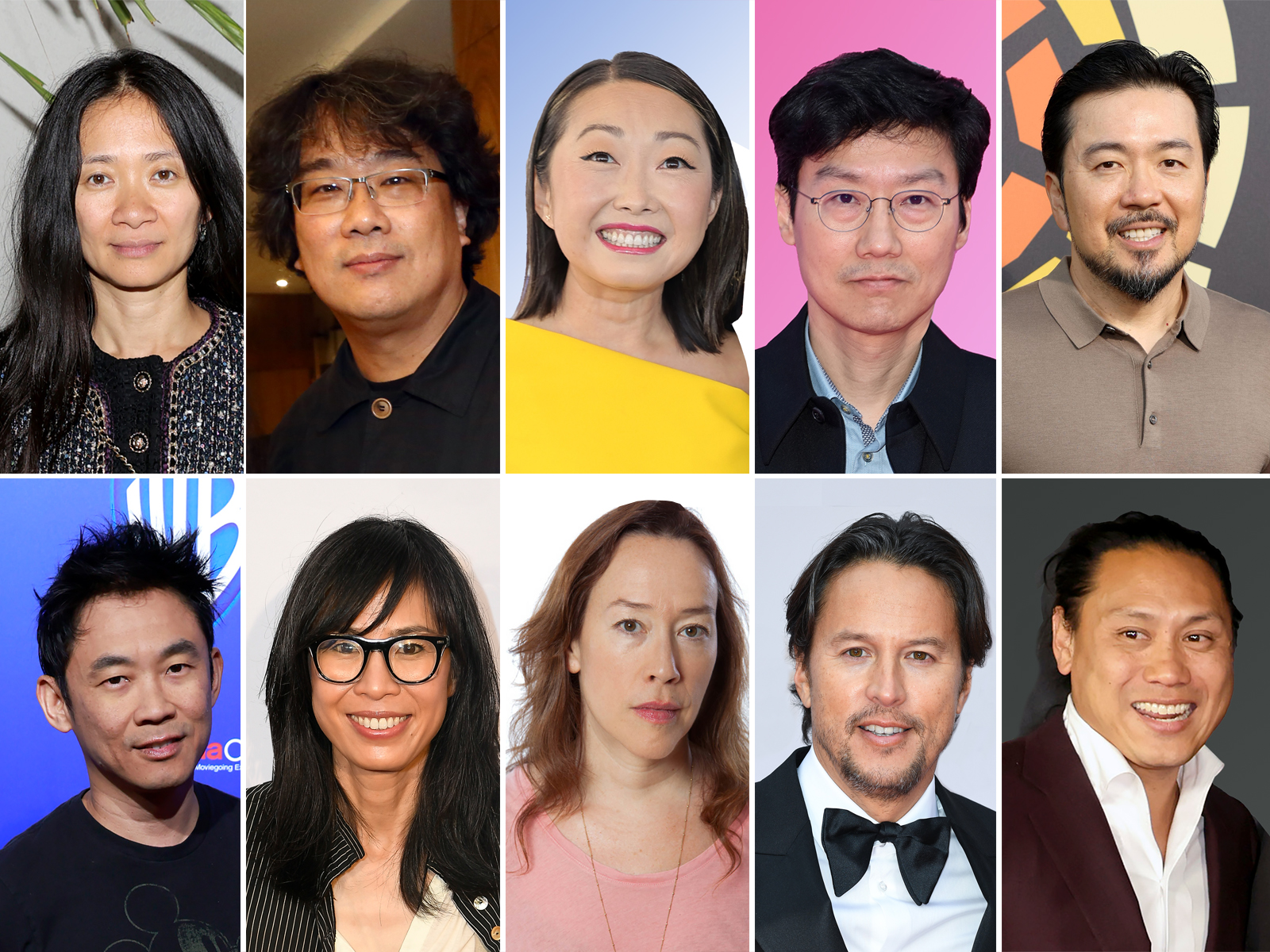
- Industry
The Rise of Asians Behind the Camera
Historically, the landscape of successful Asians behind the camera has been sparse. Among the few who peopled this landscape, however, there have been standouts – famously, Japanese director Akira Kurosawa, who helmed over thirty films in his career during the mid-1900s, and is often cited as the inspiration for the work of Steven Spielberg, Martin Scorsese, and George Lucas. As far as contemporary filmmakers, Ang Lee – who has amassed three Golden Globe wins (Best Director and Best Non-English Language Film for Crouching Tiger, Hidden Dragon, as well as Best Director for Brokeback Mountain), and three Oscars – is perhaps the most celebrated.
However, in recent years, with the success of Crazy Rich Asians, Parasite, The Farewell, Minari, and, of course, the Netflix phenomenon, Squid Game, a new crop of Asian filmmakers has changed the perception and broadened the presence of Asians in Hollywood.
Below-the-line talent, such as two-time Golden Globe winner Chloé Zhao, who for her 2020 film, Nomadland, earned trophies in the categories of Best Director, Best Film, and a nod for Best Screenplay, also garnered a Best Director and Best Film trophy at the Academy Awards, among other accolades. Zhao is the second woman in history to win a Best Director Academy Award, following Kathryn Bigelow, in 2010 (The Hurt Locker). Her triumph also distinguishes her as the first woman of color to win in this category.
Nomadland is a quintessentially American movie. While some hold the view that one needs to be of the corresponding nationality in order to embody the necessary ethos and radiate those cultural sensibilities in any authentic way, Zhao said in an HFPA interview (in December 2020) to promote Nomadland, “I identify first and foremost as human. That sounds cliché, but we have to start reminding ourselves that it is possible for me to relate to people who I have nothing in common with. At the same time, I’m definitely not suggesting that there isn’t a responsibility [in portraying] that authenticity, or respect you have to pay that community. If I were to speak purely intellectually, I do believe we can tell each other’s stories and we should tell each other’s stories. That will make the world a better place.” The Bejing-born filmmaker’s latest effort was the superhero film Eternals, which she co-wrote and directed.
Another relative newcomer is the two-time South Korean Golden Globe-nominated Bong Joon-Ho (also the recipient of three Oscars), for the 2019 movie Parasite, Best Director, Best Original Screenplay, and Best Film. Joon Ho is also known for such films as The Host (2006), Snowpiercer (2013), and Okja (2017). He will next work with Robert Pattinson in an adaptation of the novel, Mickey7.
Chinese-American filmmaker Lulu Wang, known for The Farewell, said during an HFPA press conference in 2019, “[Many of us] feel as American as the next person inside of our skin. Other people may have judgments and don’t see us as American, but we feel very comfortable here,” she says. “You often hear about exploring your roots, and that’s very romantic, but then you may get there (in her case China) and you’re like, ‘Oh my God. This is weird. Where’s my avocado toast?’”
Other names who have enjoyed global success include South Korean Hwang Dong Hyuk (Squid Game), Taiwanese-American Justin Lin (Fast and the Furious franchise), Malaysian-Australian James Wan (Aquaman), Chinese-American Alice Wu (The Half of It), Japanese-American Karyn Kasuma (Destroyer), Japanese American Cary Joji Fukunaga (No Time to Die), and Taiwanese-American Jon M. Chu (Crazy Rich Asians, In the Heights).
Arguably, in casting an Asian lead in an American rom-com in Crazy Rich Asians, director Chu changed the face of mainstream cinema. He said during an HFPA press conference in 2018, “I wanted to give Asians across the world a look at how a Hollywood rom-com would feel with their face in there, without thinking about their Asian-ness. It was important to get across that we share in the same stories that everyone else shares in.”
So then, has Chu succeeded in normalizing the idea that beneath our superficialities we’re all the same? With box office receipts over $230 worldwide, Chu has convincingly – and profitably – driven home his point.